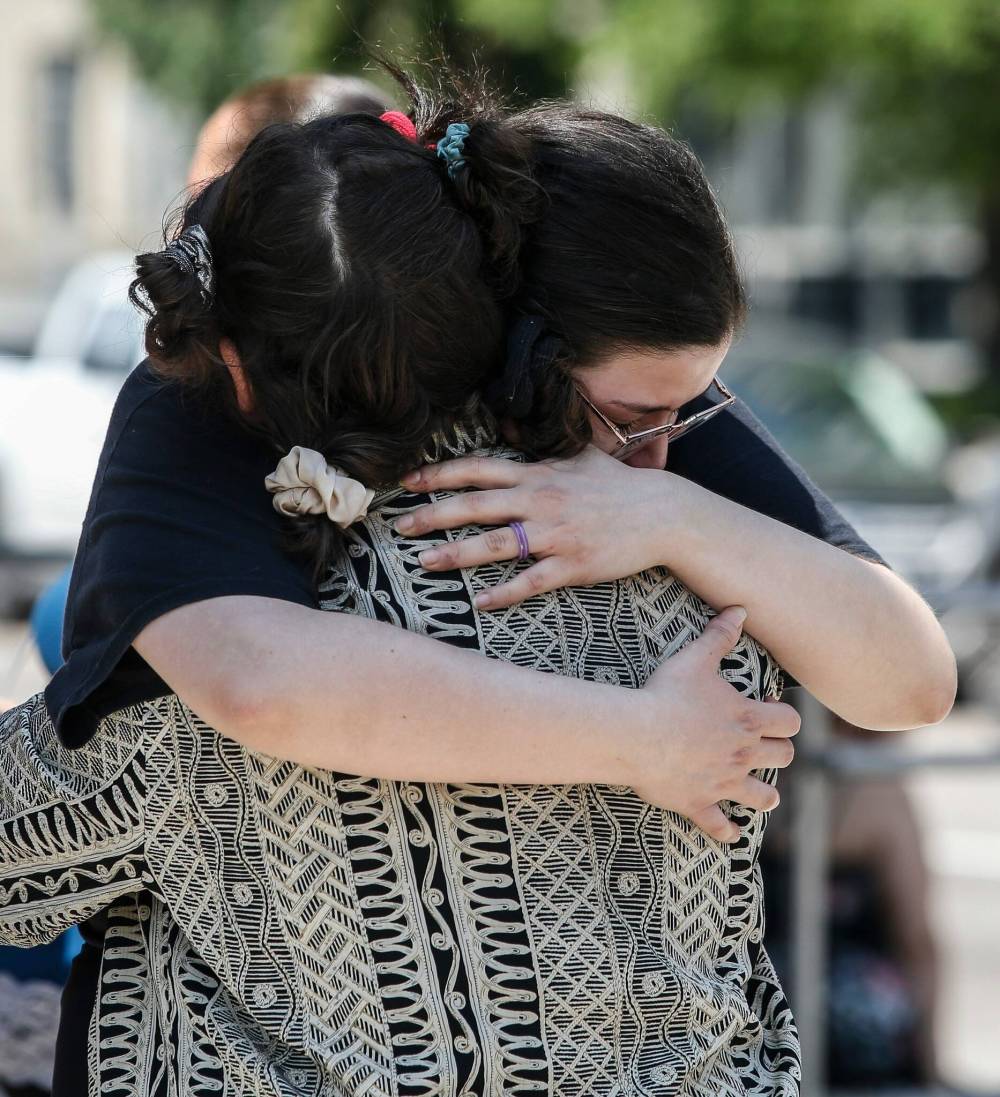Justice is served — but the work continues
Advertisement
Read this article for free:
or
Already have an account? Log in here »
To continue reading, please subscribe:
Monthly Digital Subscription
$1 per week for 24 weeks*
- Enjoy unlimited reading on winnipegfreepress.com
- Read the E-Edition, our digital replica newspaper
- Access News Break, our award-winning app
- Play interactive puzzles
*Billed as $4.00 plus GST every four weeks. After 24 weeks, price increases to the regular rate of $19.00 plus GST every four weeks. Offer available to new and qualified returning subscribers only. Cancel any time.
Monthly Digital Subscription
$4.75/week*
- Enjoy unlimited reading on winnipegfreepress.com
- Read the E-Edition, our digital replica newspaper
- Access News Break, our award-winning app
- Play interactive puzzles
*Billed as $19 plus GST every four weeks. Cancel any time.
To continue reading, please subscribe:
Add Free Press access to your Brandon Sun subscription for only an additional
$1 for the first 4 weeks*
*Your next subscription payment will increase by $1.00 and you will be charged $16.99 plus GST for four weeks. After four weeks, your payment will increase to $23.99 plus GST every four weeks.
Read unlimited articles for free today:
or
Already have an account? Log in here »
Hey there, time traveller!
This article was published 13/07/2024 (473 days ago), so information in it may no longer be current.
Jeremy Skibicki was found guilty on four counts of first-degree murder Thursday for the slayings of Rebecca Contois, Morgan Harris, and Marcedes Myran, and an unidentified woman known as Buffalo Woman (Mashkode Bizhiki’ikwe).
All four women were Indigenous. They were targeted by Skibicki because of their race.
Families of the deceased and their supporters cheered outside Law Courts in downtown Winnipeg, relieved that justice had been served, hoping this will be the beginning of a healing process that could restore some peace to their lives.

That relief was not a given, considering the scores of missing and murdered Indigenous women and girls in Canada who have not found justice, such as Tina Fontaine from Sagkeeng First Nation, who went missing in July 2014 and whose body was found wrapped in plastic and a duvet cover the following month in the Red River. Raymond Cormier was charged with second degree murder in her death but was acquitted.
Although Skibicki admitted to killing the four women, he pleaded not-guilty owing to a mental disorder, specifically schizophrenia. He claimed he heard voices that compelled him to carry out the gruesome acts of killing and discarding the bodies of the deceased.
Court of Queen’s Bench Chief Justice Glenn Joyal rejected the not-criminally-responsible argument of the defence and convicted Skibicki on all four counts. Justice was done. It won’t bring back the women who were slain, but it will give family, friends and others the chance to find closure.
Thursday’s verdict does not mark the end of these tragic killings. It is believed the remains of two of the deceased, Morgan Harris and Marcedes Myran, are buried at Prairie Green Landfill, north of Winnipeg. A search for their remains is scheduled to begin at the landfill in the fall. The outcome of those efforts, good or bad, will have a profound impact on the ability of family, friends, and supporters to heal.
There is likely no case that more profoundly reflects the broader issue of missing and murdered Indigenous women and girls in Canada. Chief Justice Joyal said although the case had to be considered impartially and adjudicated based on the facts, he acknowledged it was important to view it against the larger backdrop of the crisis that has gripped this country.
Indigenous women and girls are going missing and are being murdered at rates far higher than non-Indigenous women and girls. The killings of these four women, taken from their families and friends solely because of their Indigeneity, strikes at the heart of the matter.
Solutions are needed to address the root causes of these tragedies, including how to reverse the damage caused by generations of colonialism, Canada’s assimilative policies, and the country’s continued mistreatment of Indigenous peoples.
Systemic racism still exists in many areas of society, including in the child welfare system, health care and the criminal justice system. It is only in recent years that government agencies and professional bodies have begun to acknowledge that. It is now time to take the next step and do something about it.
Restoring sovereignty to First Nations through the transfer of services such as health care and child welfare, fulfilling treaty obligations, promoting economic development in Indigenous communities, and better educating society on the history and current status of Indigenous issues are just some of the many steps government and society must take to address root causes.
Justice was done on Thursday. But there is still a lot of work ahead on Canada’s road to reconciliation.

